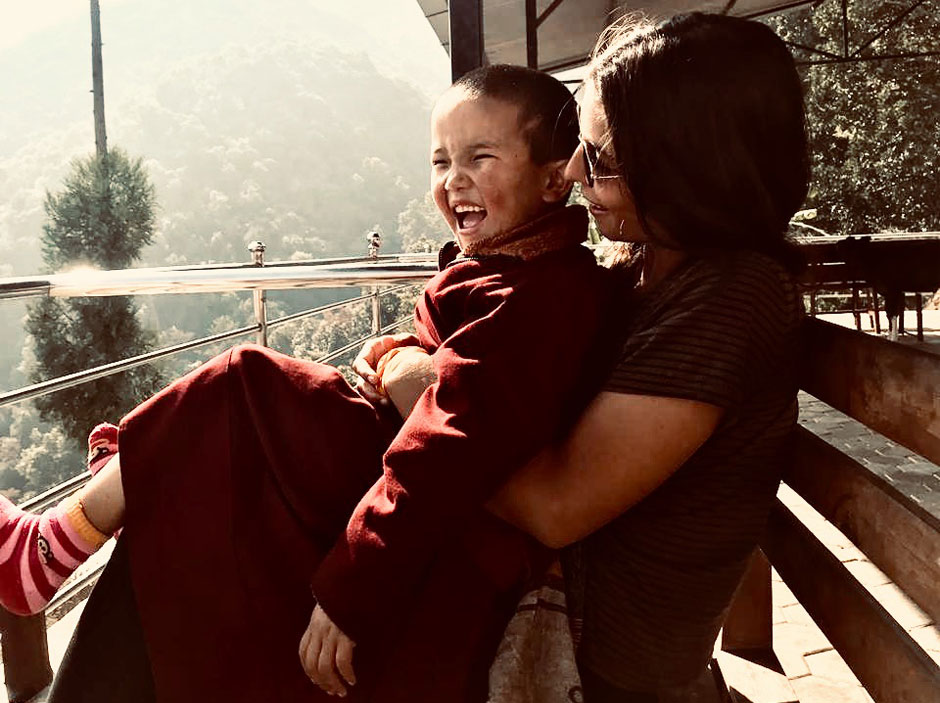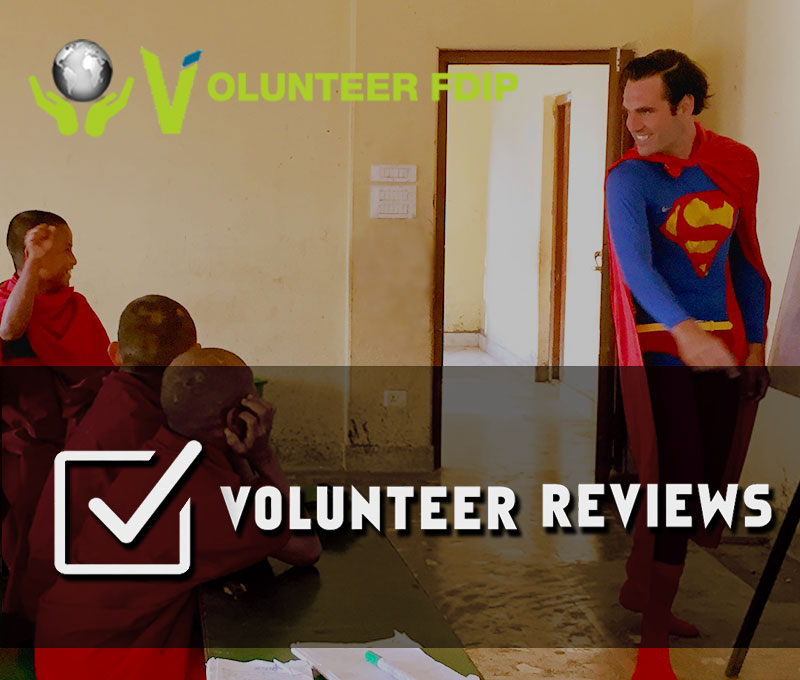Nurturing Compassion: A Path to Personal and Social Transformation
Last Updated: January 01, 2025
Author: Sadasha Dixit
Tweet
Compassion is a complex and multifaceted emotion that has been the subject of much scientific inquiry and for me, extended personal reflection. From an evolutionary perspective, compassion has played a crucial role in human survival and flourishing, fostering social cohesion, altruism, and well-being. Recent research in the fields of neuroscience, psychology, and social sciences has shed light on the nature and significance of compassion, highlighting its neural and affective correlates, cultural variations, and therapeutic potential.
Yet, despite its importance and benefits, compassion is often neglected or inhibited by various factors, including social norms, cognitive biases, and personal fears. In this article, I will explore some of the latest findings and insights on the psychology of compassion, drawing from a review of research articles and incorporating personal viewpoints and perspectives from friends and family. By examining the challenges and opportunities of cultivating compassion, I aim to deepen our understanding of this fundamental aspect of human nature and its potential for personal and social transformation.
The article "The Compassionate Mind" drew my interest by highlighting the benefits of compassion, including improved mental and physical health, stronger social connections, and increased overall well-being. The plethora of benefits from practicing a mere emotion came as a surprise to me until I recalled our evolutionary instinct as social beings. Although compassion is a core aspect of human nature, it seems to be challenging to practice this inherently natural instinct today. My curiosity about this discrepancy was noted by the author who argues that compassion is often inhibited by social and cultural factors, such as fear, competition, and stigma.
This view seems to align with people I had the chance to gain insight from, who, when asked in an anonymous survey, despite the fact that compassion is a natural human instinct, what factors have led to the normalization of unempathetic behavior? Said, sexism, racism, capitalism, and stigma. Additionally, social values and personal traumas were also mentioned.
Going back to sexism–a response discussed the nature of compassion and empathy and how society has labeled these emotions as being weak. Enforced by social media, men in particular are expected to not practice these “soft” emotions and in turn, lack empathy and seem to have a lost concept of compassion.
A set of responses in the survey mentioned trauma and adversity in their lives being reasons behind their difficulty in experiencing and expressing compassion as they may have developed coping mechanisms that prevent them from feeling empathy or may have a hard time trusting others. This may also go hand-in-hand with sexism, racism, childhood trauma, relationship trauma, etc. My question to this aspect is, shouldn’t adversity and trauma faced by others be motivators to exude more compassion and kindness towards one another? It’s difficult to understand what someone is going through and we could all use extra kindness here, and more empathy there.
I believe cognitive and emotional biases, such as self-serving bias, ingroup bias, and negativity bias can also be listed among these factors, as they can interfere with one’s ability to feel and express compassion towards strangers and/or outgroup members.
Another response highlighted capitalism and the money and power-hungry society we are transpiring into. Life, they said, is being taken as a race to wealth and riches which has made people lose sight of significant values that make us the inherently compassionate beings we are. This, I believe, is where racism comes into play–the wealthy and privileged spewing hate on the minority–blocking their walk to the same power and wealth. Competition for materialistic items and the illusion of power and social status have disconnected us from our core values.
We seem to have shifted our priorities from existing in a mutually beneficial harmonious society to hate and greed-driven capitalist dystopia. The rise of technology and social media may have also contributed to a sense of disconnection and depersonalization, making it easier for people to dehumanize or ignore the suffering of others. With the rise in cyberbullying and hateful content tainting the grounds of social media, it comes as no surprise that the tool used to keep us connected is tearing us apart.
Tying in with the societal race for wealth and power, I was interested in the article “The Evolution and Social Dynamics of Compassion,” where Paul Gilbert proposes an insightful analysis of the evolutionary and social dynamics of compassion. Along with reviewing empirical evidence from various fields, including neuroscience, anthropology, and psychology, to support the idea that compassion is a core aspect of human nature, Gilbert also explores the cultural variations in the conceptualization and expression of compassion. He highlights the role of social norms and practices in shaping compassionate behaviors. This comes as no surprise to me, considering the influence of cultural and social norms that prioritize individualism, competition, and achievement over collectivism, cooperation, and altruism. The result of individualism, in many societies, forces us to equate personal achievement with success and status, rather than empathy and kindness toward others, which brings us back to my previous argument about capitalism and competition.
Personally, having grown up in a collectivistic society, my transition into an individualistic world was harsh and cold. I have seen the results of both up bringing styles and although I am not at liberty to determine the “best” practice per se, I would not wish to have my collectivistic roots removed from my values today, as it helped build an altruistic foundation around my personality, which I treasure.
Having discussed the potential causes for our unfamiliarity with a core aspect of our being humans, I want to now look at what research suggests we can do to overcome these barriers.
A study done by Hooria Jazaieri and colleagues presents a randomized controlled trial of a compassion cultivation training program. The study involved a sample of adults who completed an eight-week compassion training program that involved mindfulness meditation, visualization, and cognitive-behavioral techniques. The study found that the compassion training program was associated with significant improvements in mindfulness, positive affect, and emotion regulation, compared to a control group that received no training. The article also highlights the potential benefits of compassion training for enhancing psychological well-being and social relationships.
In other words, findings from this research showed that developing a greater awareness of our own emotional responses and learning to cultivate a more compassionate mindset not only promotes healthy social relationships but helps us regulate our emotions and cultivate our psychological well-being.
This study made me dabble with the “hurt people, hurt people” saying, which, in turn, promotes that people who are happy within exude compassion as opposed to those fighting battles (related to trauma, insecurity, self-image, etc.) in their minds. Perhaps this is a topic for another day. Regardless, in my eyes, for an individualistic society, it may be beneficial to practice compassion for reasons to cultivate healthy psychological well-being, at the very least. Perhaps inner compassion will one day seep through them.
Similarly, a research article by Olga Klimecki and colleagues investigates the science behind compassion training by monitoring its neural and affective correlation. The study used fMRI to examine changes in brain activity associated with a nine-month compassion training program that involved daily meditation practices. The study found that compassion training was associated with changes in brain regions involved in social cognition and emotion regulation, as well as increased positive affect. The article provides important insights into the neurobiological mechanisms of compassion training and its potential therapeutic applications.
Both these studies further reinforce that compassion can be a powerful force for positive change in the world, both in individual relationships and in society as a whole. The therapeutic element of the compassion training finding can be utilized for people both with and without trauma as it can be an effective tool for self-healing and betterment.
In conclusion, compassion is a multifaceted and essential aspect of human nature that has played a crucial role in our survival and flourishing. However, various factors, including social norms, cognitive biases, personal fears, trauma, and cultural variations, can inhibit our ability to feel and express compassion toward each other. The rise of individualism, competition, and materialism in many societies has disconnected us from our core values and prioritized personal achievement over empathy and kindness, leading to a normalization of unsympathetic behavior. Despite these challenges, research suggests that cultivating compassion through various training programs can significantly improve mental and physical health, strengthen social connections, and increase overall well-being. Therefore we need to acknowledge and address the barriers to compassion and work towards building a more compassionate and empathetic society for ourselves and future generations. We need to treasure our altruistic essence and cannot continue going down the road of being emotionless and robotic beings.
*Special thank you to everyone who contributed to the survey!
Sources Cited:
- Goetz, J. L., Keltner, D., & Simon-Thomas, E. (2010). Compassion: An evolutionary analysis and empirical review. Psychological Bulletin, 136(3), 351-374.
- Gilbert, P. (2017). The evolution and social dynamics of compassion. Social and Personality Psychology Compass, 11(8), e12335.
- Jazaieri, H., McGonigal, K., Jinpa, T., Doty, J. R., Gross, J. J., & Goldin, P. R. (2014). A randomized controlled trial of compassion cultivation training: Effects on mindfulness, affect, and emotion regulation. Motivation and Emotion, 38(1), 23-35.
- Klimecki, O. M., Leiberg, S., Lamm, C., & Singer, T. (2013). Functional neural plasticity and associated changes in positive affect after compassion training. Cerebral Cortex, 23(7), 1552-1561.
- Leary, M. R., Tate, E. B., Adams, C. E., Batts Allen, A., & Hancock, J. (2007). Self-compassion and reactions to unpleasant self-relevant events: The implications of treating oneself kindly. Journal of Personality and Social Psychology, 92(5), 887-904.
About Author
Sadasha is a published author and former outpatient services counselor, with a double degree in honors Psychology and English Writing from the University of San Francisco. She has published a research article on credible platforms like PubMed and Science Direct, and has worked with various NGOs and the University of San Francisco by writing blog posts/articles and leading social service incentives. In 2021, Sadasha led an initiative with Clinic One in Kathmandu, Nepal, to provide cost-free emotional support both nationally and internationally, demonstrating her commitment to improving mental health access and care globally. Currently, she works as a business development representative for a healthcare technology company, thriving to expand access to quality healthcare globally.
Please click here to get the complete details on available programs, volunteer’s roles and activities , accommodation, cost, visa , vaccination, airport arrival and the rest of it.
Get More Info Now »







